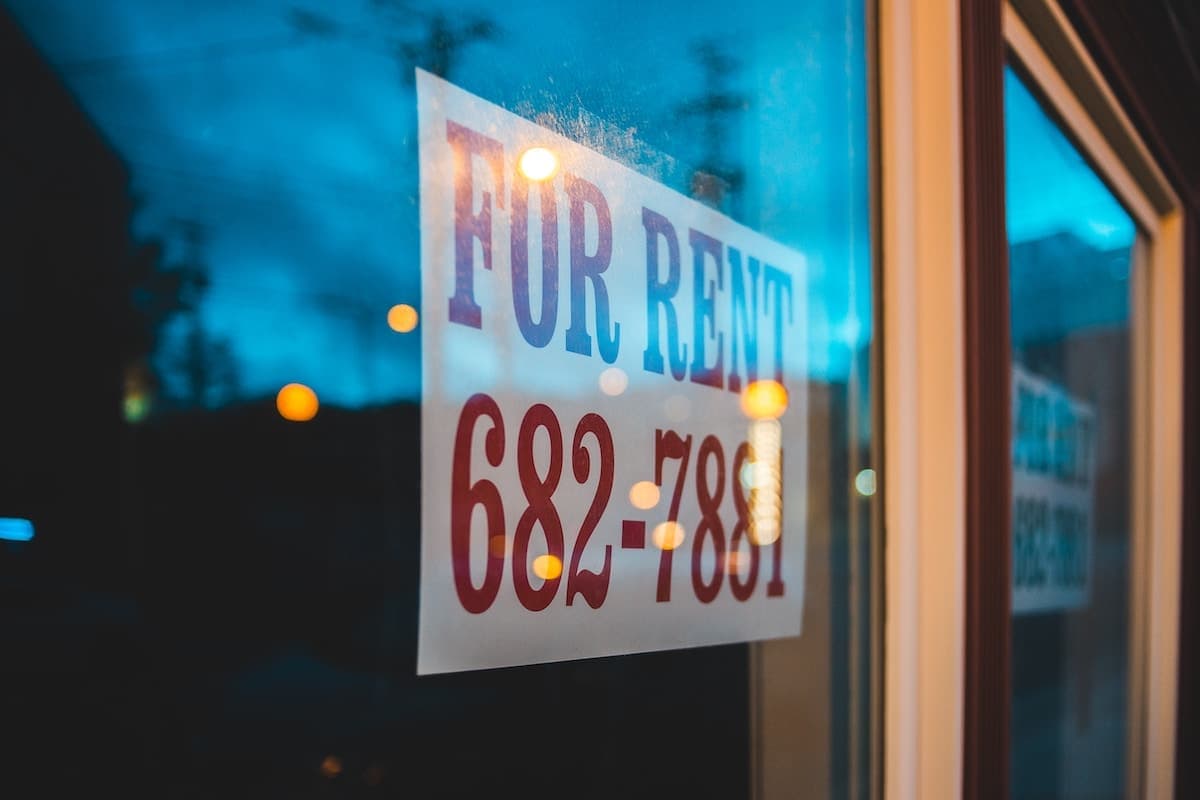What Is the Minimum Credit Score for Renting an Apartment in Canada
By Heidi Unrau | Published on 02 Mar 2024

There is no universal minimum credit score for renting an apartment in Canada. While most landlords prefer a good credit score of at least 660, a lower score won’t automatically disqualify you. The minimum credit requirements vary widely among landlords as well as rental markets across the country. In this article, we’ll explore everything you need to know about the recommended minimum credit score for renting an apartment in Canada.
Recommended Minimum Credit Score For Hot Rental Markets
In hot rental markets like Toronto, Vancouver, and Montreal, the competition for a place to live is intense. There are not enough rental properties to satisfy demand. So landlords have an abundance of tenants to choose from which naturally leads to stricter requirements, like a higher minimum credit score required to rent an apartment. Here’s a general idea of the credit score you’ll need in the three hottest markets:
Toronto
Toronto is by far Canada’s most expensive rental market, with an average rent of $2,600 for a one-bedroom apartment. Landlords tend to prefer tenants with a very good credit score of around 700 and up. Remember this is not set in stone, but it will increase your chances of getting approved for an apartment.
Vancouver
Similar to Toronto, Vancouver’s rental market is also very competitive. Here, landlords generally look for credit scores in the 700 range as well. Again, a slightly lower score might be acceptable, but the higher the better.
Montreal
While Montreal’s rental market is also competitive, it is somewhat less intense than Toronto or Vancouver. Landlords in Montreal are more likely to consider tenants with credit scores in the 660-700 range. The market here can be more flexible, and landlords may place more emphasis on other factors like employment and references.
Recommended Credit Score For Smaller or Cooler Markets
Cooler rental markets typically have looser credit requirements. In these areas, the minimum credit score to rent an apartment is generally around 660 with more rural areas accepting scores as low as 600. Again, I cannot stress enough that this is not a universal standard. Credit requirements vary from one landlord to the next.
Some landlords do not even perform rental credit checks on potential tenants. This is especially true for private landlords in smaller cities and towns. They tend to rely more heavily on personal references, proof of income, and rental history to assess your financial reliability.
Minimum Credit Score by Landlord Type: Rental Company vs Private Landlord
The minimum credit score for renting an apartment in Canada can also vary significantly depending on who you’re dealing with – a rental company or a private landlord. Each has very different credit criteria and levels of flexibility when it comes to tenant screening. Here’s what to know:
Rental Companies: Higher Credit Score Expectations
Rental companies often manage larger apartment complexes or multiple properties. They tend to have more standardized procedures for tenant screening, including specific credit score requirements. For this reason, applying for an apartment with a rental company almost always requires a credit check.
Generally, rental companies look for a higher credit score compared to private landlords. A score of 700 or above is often preferred, especially in competitive markets like Toronto, Vancouver, and Montreal. Rental companies in less competitive markets are more likely to require a minimum credit score of around 660.
These companies usually have set policies in place for credit score requirements, making the process more predictable but less flexible. They also tend to use automated systems to screen applications, which can be less forgiving if you have a lower credit score or unique financial situation.
Private Landlords: Lower Credit Score Expectations
Private landlords typically own a smaller number of apartment units, like a 4-plex or 6-plex property. They’re more likely to accept credit scores in the 600-660 range, depending on the market. Some don’t even check your credit. Instead, they look at your income, employment history, and personal references to determine whether or not to rent to you.
Again, these are estimates – not rules. The credit criteria can vary widely from one private landlord to another. This can make the process less predictable but potentially more accessible if you have a lower credit score. Especially if other aspects of your application are strong.
How Landlords Perform a Credit Check
The primary risk for landlords is the non-payment or late payment of rent. Your credit score acts as a predictive tool. It offers insights into the likelihood you’ll pay rent on time and in full each month. Landlords have several options to perform a rental credit check on prospective tenants. Below is a table with the most popular tenant credit check providers and how much they cost.
| Tenant Credit Check Providers | Pricing |
| FrontLobby | $17.99 per report, or $9.99 per report with a $19.90 monthly subscription |
| SingleKey | $24.99 per report |
| TenantVerification | $24.95 per report |
| ApplyCheck | $89.00 for criminal, credit report and credit score check in Canada |
| TransUnion SmartMove | $25.00 for Basic, $40.00 for Plus, or $44.00 for Premium |
| liv.rent | $21.99 per check without subscription, or $48 per month for 2 monthly checks, or $399 per month for 15 monthly checks |
Understanding these prices is crucial, as a landlord might ask the tenant to cover the cost of a tenant credit check. Therefore, if a landlord requests payment exceeding the prices mentioned above, feel free to inquire about the provider they’re using and why it’s so expensive.
How Credit Scores Affect Rental Applications
In most cases, landlords will check a potential tenant’s credit score as part of the rental application process. If your credit score is low, it could make it more difficult for you to find a landlord willing to rent to you. Alternatively, you may be required to pay a higher security deposit or provide a co-signer or guarantor to secure the rental.
Remember, having a low credit score doesn’t necessarily mean that you won’t be able to rent an apartment. Some landlords may be willing to overlook a low credit score if you have a good rental history or a steady income. However, it’s always best to work on improving your credit score to increase your chances of being approved for a rental.
[Offer productType=”OtherProduct” api_id=”658093db0882fc3599b2b6ad”]Alternative Options for Renters with Low Credit Scores
If you’re having difficulty renting an apartment due to a low credit score, there are alternative options you can explore.
Find a co-signer or guarantor
One possible solution is to find a co-signer or guarantor who can attest to your financial dependability. This individual, often a close friend or family member with a strong credit history, is willing to assume the responsibility tied to your rental agreement. Importantly, this entails that in the event you are unable to fulfill your rent payments, the co-signer or guarantor will be legally obligated to cover the cost.
This is a significant responsibility, so it’s critical that the co-signer or guarantor fully understands the implications of co-signing before agreeing to such an arrangement. Their commitment provides a safety net for the landlord, which may increase your chances of securing the rental, even with a lower credit score.
Offer a larger security deposit
An alternative strategy you may consider is proposing a higher security deposit to reduce the financial risk for the landlord. While this may be a large upfront expense, it could improve your chances of getting approved for the apartment you want.
However, there are strict laws regulating the security deposit a landlord can require as a condition of tenancy in Canada. As a result, landlords are prohibited from asking for a substantial deposit as a condition for overlooking your low credit score. However, the law doesn’t prevent you from offering a larger security deposit. Below is a table with the specific rent deposit limits that a landlord can ask for in each province.
| Provinces | Security Deposit Restrictions |
| Alberta | No more than one month’s rent |
| British Columbia | No more than half of the monthly rent |
| Manitoba | No more than half of the monthly rent |
| New Brunswick | No more than one month’s rent |
| Newfoundland & Labrador | No more than 75% of one month’s rent |
| Nova Scotia | No more than 50% of one month’s rent |
| Ontario | No more than one month’s rent |
| Prince Edward Island | No more than one month’s rent |
| Quebec | Requiring a security deposit from a tenant is illegal |
| Saskatchewan | No more than one month’s rent |
Demonstrate regular income
Even with a low credit score, showing that you have a steady income can reassure landlords that you have the means to pay your rent. You could provide recent pay stubs, a letter from your employer, or bank statements as proof of your income.
Renting from private landlords
Securing a rental from individual property owners can often be a favourable option. These individuals, often referred to as private landlords, contrast to corporate entities or property management companies that operate multiple rental properties. Private landlords might have a more flexible approach to their application criteria. They could potentially overlook a lower credit score if you can present other positive attributes, such as a stable income or an impressive rental history.
Consider roommates
If you’re comfortable with the idea, consider finding a roommate. This will not only share the financial burden but having a roommate with a strong credit score can increase the likelihood of securing a lease.
How to Improve Your Credit Score to Rent an Apartment
If your credit score is less than ideal and you’re looking to rent an apartment, there are steps you can take to improve your creditworthiness. Some tips for building a strong credit history include paying bills on time, keeping credit balances low, and regularly checking your credit report for errors or inaccuracies.
Get a secured credit card
A secured credit card can be a potent tool in the process of repairing a damaged credit score. This type of card necessitates a deposit that dictates your credit limit. By using this card responsibly and consistently paying your bills on time, you slowly enhance your credit standing since your payment behavior is relayed to the credit bureaus.
Sign up for Rent Advantage from Borrowell
Services such as Borrowell’s Rent Advantage can prove beneficial in your credit repair journey. This program enables your regular, punctual rent payments to be reported to the credit bureau, essentially converting your rent payments into a credit score enhancing activity. This way, by simply meeting your rental obligations, you’re making a positive impact on your credit score.
Final Thoughts
There is no one-size-fits-all answer to the question of what the minimum credit score requirement is for renting an apartment in Canada. However, by understanding how credit scores impact your application and taking steps to improve your creditworthiness, you can increase your chances of securing the rental you want.
